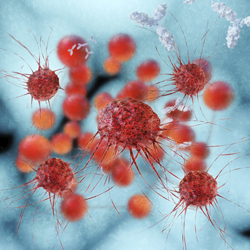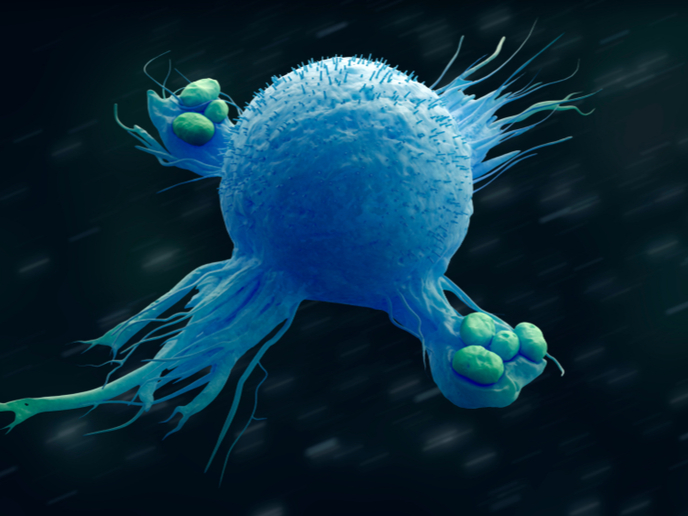Increasing efficiency of immunotherapy
ATCI involves the transfusion of the patient's T cells (part of the immune system) after ex vivo manipulation to eliminate tumours and prevent its recurrence. Though ATCI shows promise, this treatment could be optimised by improving the persistence and responsiveness of transferred T cells. Lymphopenia (LP) is characterised by abnormally low levels of lymphocytes in the blood that is seen after chemotherapy or medical whole body radiation. LP can stimulate the differentiation and activation of the T cell compartment and this can be exploited to improve the efficacy of ATCI treatment. The EU funded T CELL HOMEOSTASIS project focused on identifying parameters that enhance the survival and reactivity of adoptively-transferred tumour-specific T cells. Researchers established that irradiation-mediated LP skewed the proliferation of donor T cells, whereas chemotherapy induced a massive proliferation of donor T cells. These data strongly suggested that conditioning triggered changes in the host environment, rather than LP modulating the fate of adoptively transferred T cells. Indeed, further studies showed that the numbers as well as subsets of other types of immune cells differ in irradiated and chemo-treated mice. Furthermore, a very different spatial organisation of the lymphoid tissues was observed in these different LP environments. T CELL HOMEOSTASIS demonstrated that LP-inducing regimens are not equal and that their distinct effects on immune cell subsets regulate adoptively-transferred T cells. An understanding of these parameters will be crucial for the future development of immunotherapy protocols.







